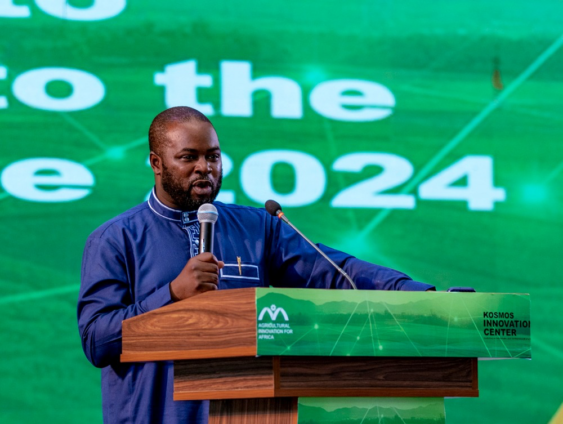
Audio By Carbonatix
The National Project Coordinator for the International Trade Centre's Netherlands Trust Fund 5 Programme, has called on stakeholders in Ghana’s agricultural value chain to prepare for the integration of traceability systems within the sector.
Isaac Newton Acquah stated that implementing traceability is crucial to maintaining trade relationships with major agricultural export partners.
"The European Union is a major export partner for Ghana, and with new laws coming up in 2025 that require tracing any produce we’re exporting, we need to be prepared,” Acquah said.
Speaking at the second Agricultural Innovation for Africa (AIA) Conference, organised by the Kosmos Innovation Centre and its partners, Acquah highlighted the significant contribution of agriculture to Ghana’s Gross Domestic Product (GDP) and stressed the importance of adapting to evolving export market trends to ensure sustained benefits from the nation’s agricultural exports.
While acknowledging the challenges facing Ghana’s agricultural sector, Acquah noted that several industry players are tackling these issues.
“We have 99 problems, maybe more, but there are companies like Grow for Me, Sabon Sake, and Farmerline addressing access to finance, carbon sequestration, and traceability, respectively,” he said.

He noted the need to transform Ghana into a major exporter of agricultural produce.
“Our goal should be to transition from dependence on food imports to becoming a leading exporter. We need to generate surplus produce that can be exported for additional revenue,” he asserted.
Acquah also encouraged Ghanaian youth to take an active role in agriculture to help achieve national food security.
"Agriculture offers numerous opportunities for young people. You don’t need a background in agriculture to make an impact. Ultimately, it’s not just about job creation but ensuring food security," he added.
The AIA Conference, held under the theme “Empowering Youth Startups and Agri-MSMEs in Africa: Addressing Climate Change, Innovative Financing, Market Efficiency, and Gender Mainstreaming for Sustainable Food Systems,” brought together over 500 participants both virtually and in person, featuring discussions on innovative financing, market efficiency, and a workshop on traceability.
Latest Stories
-
Dr Ibn Chambas calls for Africans to ‘defend their dignity’
4 minutes -
Let’s treat persons with disabilities right – GHS staff urged
36 minutes -
Soldiers in Benin say they have seized power from President Talon
44 minutes -
Lionel Messi leads Inter Miami to MLS Cup glory
1 hour -
Soldiers on Benin’s national television claim to have seized power
1 hour -
Premier Tennis Club organizes Tema Farmers’ Day Tournament
1 hour -
Liberia, South Africa ex-First Ladies attend Lordina Foundation’s 5th health screening for retired ministers
2 hours -
KGL Foundation partners Premier Tennis club to celebrate Farmers’ Day
2 hours -
Adrobaa crowned winners as Milo U13 Championship makes grand return
3 hours -
NAIMOS seizes excavators and shuts down illegal Riverbank mining in Eastern Region
4 hours -
NAIMOS dismantles illegal foreign mining network along the Bia River
4 hours -
Zelensky signals progress in talks with US on peace plan
5 hours -
Policemen assaulted in Jirapa; AK-47 rifles stolen
7 hours -
Bibiani tragedy: Toddler killed by moving Toyota Pickup
7 hours -
Don’t scrap OSP – Anti-corruption CSO demands review
9 hours

